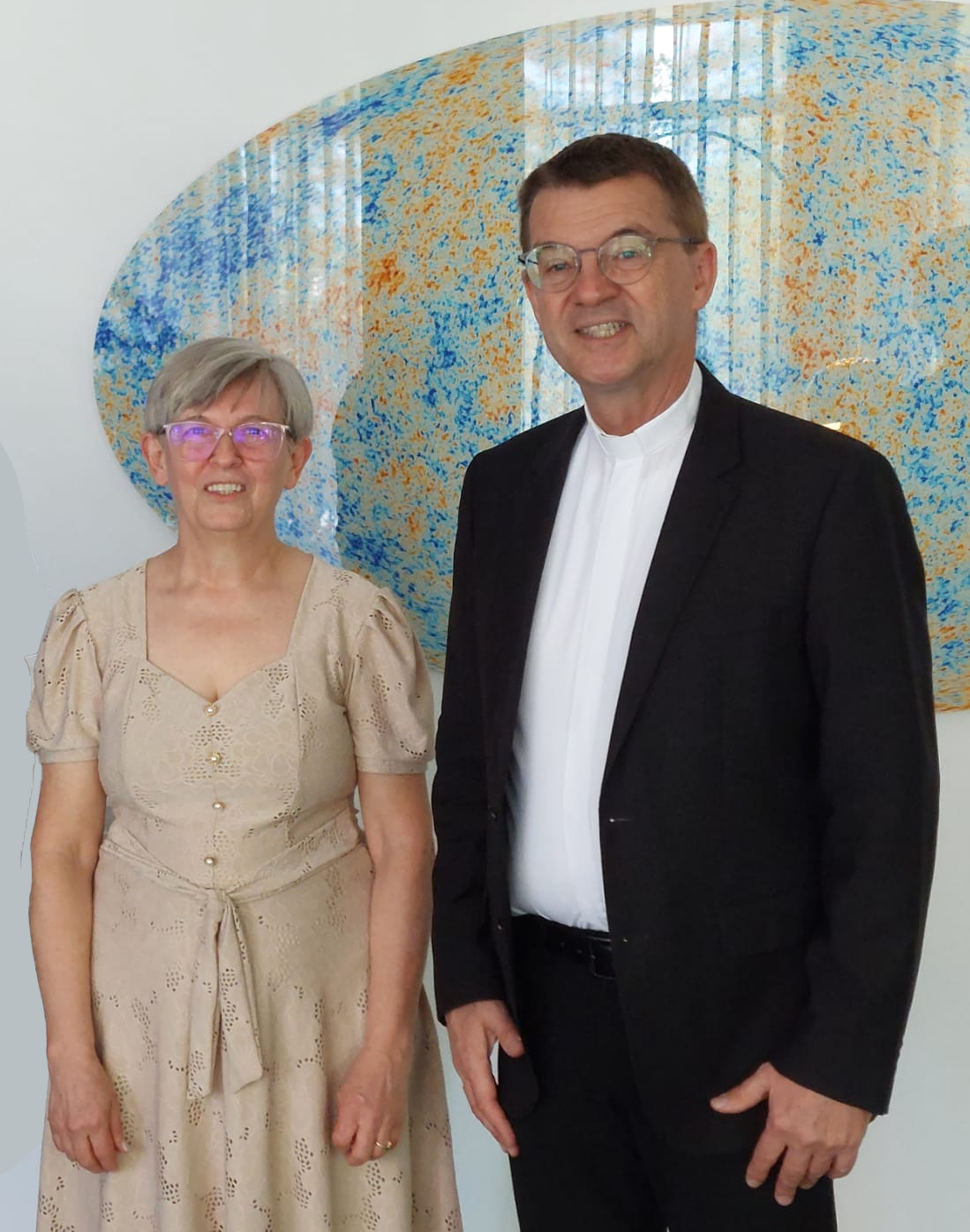Between August 21 and September 4, the director of the Scalabrinian Center for Migration Studies (CSEM), Sister Marlene Wildner, traveled to Germany for a series of institutional meetings with long-standing partners, most notably the Diocese of Rottenburg-Stuttgart, with mediation from Thomas Broch and Klaus Jürgen Kauss, whom the director described as “long-time friends of CSEM and the Congregation and, above all, great promoters of our ICoMiR (International Conference on Migration and Refuge).”
Sister Marlene emphasized that “very meaningful meetings took place throughout the visit.” One of the most important was with the new bishop of the diocese, Dr. Klaus Krämer, former president of Missio and Weltkirche.
He described CSEM as an institution with a wide network of collaborators and partners with whom it works and engages. - Sister Marlene Wildner.
During the meeting, the bishop expressed concern about the rise of xenophobic discourse in the country and showed interest in CSEM's contribution to generating knowledge and initiatives that counter the mentality “that is growing in Germany-a certain xenophobia, along with the idea that migrants and refugees are the cause of the country's problems.”
According to Sister Marlene, the bishop also presented a concrete proposal:
“He proposed to resume academic symposiums in the diocese and suggested one to be held as early as next year, in 2026. For this symposium, he specifically requested that CSEM presents its research methodology, especially its core focus on the migrant and refugee as protagonist and subject of dignity.”

The director noted that the bishop recognizes the value of CSEM's approach, which “always represents a major contribution to the societies where [the migrant] lives, and also shows that, throughout their journey, they build resilient actions and overcome the difficulties they encounter.” The bishop further suggested strengthening bridges with the German Episcopal Conference.
For the director, the meeting “placed CSEM in a very positive position to develop activities now also based in Europe.”
Dialogue with the Weltkirche Department of the Diocese of Rottenburg-Stuttgart and new possibilities for collaboration
After the meeting with the bishop, Sister Marlene visited the Weltkirche department, where she was also received by its team. According to her, the director, Dr. Heinz Detlef Stäps, greatly valued the international conferences and showed interest in participating in ICoMiR 2027, which will take place in Asia.

The dialogue focused on how CSEM can support ecclesial communities in welcoming migrants and refugees. Once again, the topic was CSEM as an institution that contributes to developing a methodology on how a diocesan church can build communities that truly integrate and value the presence of migrants and refugees in local communities, fostering an exchange of experiences.
Recognition and gratitude to Bishop Emeritus Gebhard Fürst
During the same trip, the director also visited the former bishop of the diocese, Dr. Gebhard Fürst, a central figure in the history of partnership between CSEM and Germany. “He was, in fact, the one who opened the doors to CSEM in its first projects, not only for CSEM but also for its global initiatives, always accompanying and supporting us.”

She recalled, for example, the bishop's support for peacebuilding events: “They always supported us, such as in the conference marking ten years of ceasefire in Angola, Building Peace in Angola, where the Diocese of Rottenburg-Stuttgart, through Caritas Angola, was present, helped build, and sustain the program.”
During the visit, Sister Marlene learned about the new social housing project of Caritas Germany, where the bishop resides. Each building includes a common space where families can meet once a week to share experiences and get to know one another.
She highlighted the project's inclusive character:
There is a defined percentage of low-cost housing that allows families with lower income or small children to access these residences at very low rent. Larger apartments for higher-income residents cost more, precisely to help subsidize the lower-cost housing.
Sister Marlene observed that “most of the low-income families are migrants and refugees” and that the project promotes “the coexistence of people from very different cultures and religions.” According to her, “the bishop even shared stories of people he knows personally-Muslims and others from different religions-and the dialogues he manages to foster during these encounters.”
Academic partnership and new horizons
Finally, the director met with Dr. Klaus Kießling, professor at the Sankt Georgen University of Philosophy and Theology in Frankfurt. “He is a highly renowned professor in Germany, author of many works, and has conducted extensive research in Catholic institutions that fund projects abroad, such as Kindermissionswerk and Adveniat, among others.”
The meeting opened up new possibilities for academic collaboration. The professor expressed interest in participating in joint initiatives with CSEM, especially in research developed at the European level, where he and his students could contribute through analyses and cooperative scientific activities.
Sister Marlene Wildner's visit strengthened CSEM's international presence, renewed bonds of trust with partner institutions in Germany, and opened new paths for academic, pastoral, and institutional cooperation.

